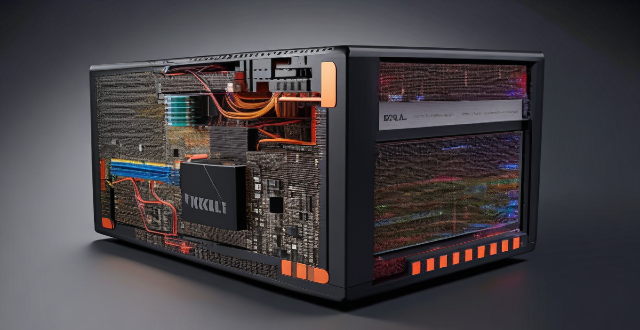Hardware components such as the processor, memory, storage, and graphics card significantly impact a computer's performance. A fast processor with multiple cores and a large cache size enhances processing power. Ample RAM allows for efficient multitasking, while faster RAM speeds improve system responsiveness. Choosing between an HDD and SSD affects startup and file access speeds, with SSDs generally offering better performance. The graphics card's VRAM, cores, and clock speeds are crucial for handling graphic-intensive tasks. Understanding these hardware aspects is essential for achieving optimal computer performance.

How Does Hardware Affect Computer Performance?
Hardware plays a crucial role in determining the performance of a computer. The components that make up a computer's hardware include the processor, memory, storage, and graphics card. Each of these components has a significant impact on how well a computer can perform tasks.
Processor (CPU)
The processor, also known as the Central Processing Unit (CPU), is often referred to as the "brain" of the computer. It is responsible for executing instructions and performing calculations. The speed and efficiency of a processor are key factors in determining overall system performance.
Clock Speed
The clock speed, measured in gigahertz (GHz), determines how many cycles per second the CPU can execute. A higher clock speed generally means faster processing power.
Number of Cores
Modern processors often have multiple cores, which allow them to handle multiple tasks simultaneously. This can greatly improve performance when running multiple programs or complex calculations.
Cache Size
The cache size determines how much data the CPU can store locally for quick access. A larger cache can lead to faster processing times.
Memory (RAM)
Random Access Memory (RAM) is where programs and data are stored while the computer is running. Having enough RAM allows for smooth multitasking and faster program loading times.
Capacity
The amount of RAM in a computer directly affects its ability to run multiple programs at once without slowdowns. More RAM generally means better performance.
Speed
The speed of RAM, measured in megahertz (MHz), determines how quickly it can transfer data to and from the CPU. Faster RAM can lead to improved system responsiveness.
Storage (HDD/SSD)
Storage devices, such as hard disk drives (HDDs) and solid-state drives (SSDs), store data even after the computer is turned off. The type and speed of storage can affect startup times and file access speeds.
HDD vs. SSD
SSDs typically offer faster read/write speeds than HDDs, resulting in quicker boot times and faster program launches. However, they are generally more expensive than HDDs with comparable storage capacities.
Capacity
Having enough storage space ensures that you can save all your files without worrying about running out of room. Larger capacity storage devices also tend to have faster read/write speeds.
Graphics Card (GPU)
The graphics card, or Graphics Processing Unit (GPU), handles rendering images and video output. It is especially important for gaming, video editing, and other graphic-intensive tasks.
VRAM
Video RAM (VRAM) is dedicated memory on the graphics card used for storing image data. More VRAM allows for higher resolution textures and smoother gameplay.
Cores and Clocks
Like CPUs, GPUs have cores that process information and clock speeds that determine their processing power. More cores and higher clock speeds generally mean better graphics performance.
In conclusion, each hardware component plays a vital role in determining a computer's performance. By understanding these components and their characteristics, you can make informed decisions when selecting or upgrading hardware for optimal performance.